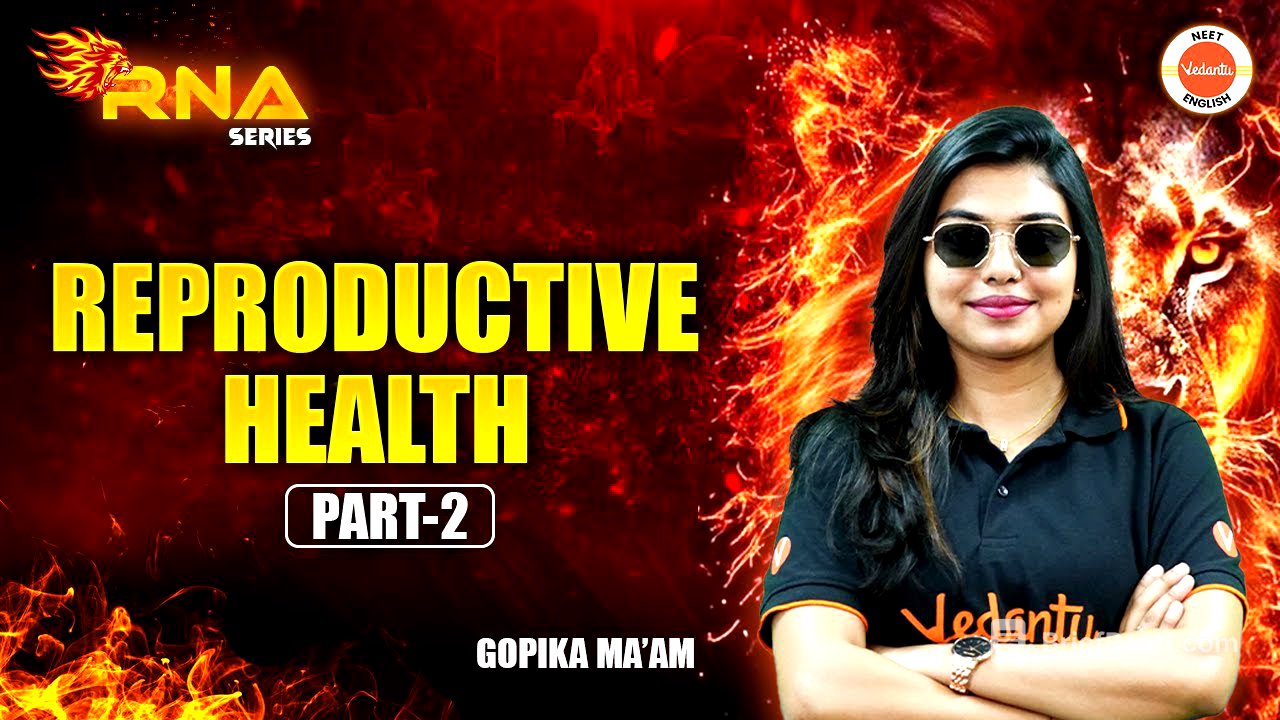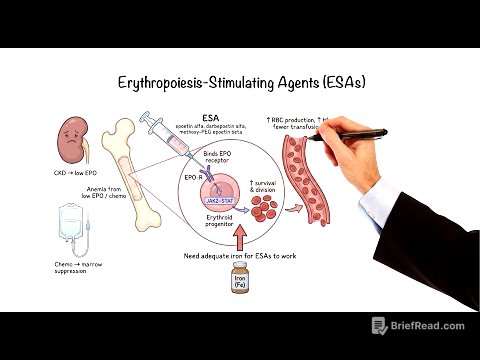TLDR;
This video is a comprehensive review of reproductive health, covering contraception methods, medical termination of pregnancy (MTP), sexually transmitted diseases (STDs), and infertility treatments. It emphasizes the importance of informed decisions, ethical considerations, and the role of healthcare professionals in reproductive health.
- Contraceptive methods and their effectiveness.
- Legal and ethical aspects of MTP.
- Prevention and management of STDs.
- Assisted reproductive technologies (ART) for infertility.
Introduction [0:02]
The video introduces the second part of the reproductive health chapter, highlighting its importance for both scoring marks and understanding crucial aspects of sex education. It emphasizes the need for teenagers and adults to be aware of reproductive health issues and solutions, especially given current events in India. The content aims to educate students on topics often not discussed openly, preparing them to be informed future doctors.
Recap of Previous Class: Contraceptive Methods [0:39]
The session begins with a recap of the previous class, focusing on contraceptive methods. These methods include natural or traditional methods (withdrawal, periodic abstinence, lactational amenorrhea), barrier methods (condoms, cervical caps, vaults, diaphragms with spermicidal creams, jellies, and foams), intrauterine devices (IUDs), oral contraceptives, implants, injectables, and surgical methods (vasectomy and tubectomy). The importance of consulting a medical professional for selecting a suitable contraceptive method is emphasized.
Contraceptive Use and Potential Side Effects [11:57]
The discussion covers the appropriate use of contraceptives, noting they are not a regular requirement for reproductive health maintenance but are used to prevent or delay pregnancy. Widespread use of contraceptives helps control population growth, but potential side effects like nausea, abdominal pain, breakthrough bleeding, irregular menstrual bleeding, and breast cancer should not be ignored.
Medical Termination of Pregnancy (MTP) [18:39]
MTP, or induced abortion, is defined as the intentional termination of pregnancy before full term. Approximately 45 to 50 million MTPs are performed worldwide annually, accounting for 1/5 of total pregnancies. The legality of MTP varies across countries due to emotional, ethical, religious, and social issues. In India, MTP was legalized in 1971 with strict conditions to prevent misuse, such as female feticide.
Reasons and Safety of MTP [26:03]
MTP is performed to address unwanted pregnancies resulting from casual unprotected intercourse, contraceptive failure, or rape. It is also essential when the pregnancy poses a risk to the mother or fetus. MTP is considered relatively safe during the first trimester (up to 12 weeks). A disturbing trend is the illegal performance of MTPs by unqualified individuals, which can be dangerous or fatal.
Amniocentesis and Sexually Transmitted Diseases (STDs) [31:01]
The misuse of amniocentesis for sex determination and subsequent female feticide is discussed, highlighting the need for effective counseling. Sexually transmitted diseases (STDs), also known as venereal diseases or reproductive tract infections (RTIs), are transmitted through sexual intercourse. Examples include gonorrhea, syphilis, genital herpes, trichomoniasis, hepatitis B, and AIDS. HIV infection is particularly dangerous due to its impact on the immune system.
Transmission and Prevention of STDs [35:39]
STDs like Hepatitis B and HIV can also be transmitted through sharing injection needles, surgical instruments, or blood transfusions. Except for Hepatitis B, herpes, and HIV, other STDs are curable if detected early. Symptoms include itching, fluid discharge, pain, and swelling in the genital region. Prevention involves avoiding sex with unknown or multiple partners and using condoms.
Infertility and Assisted Reproductive Technologies (ART) [50:57]
Infertility, the inability to produce children despite unprotected sex, affects many couples worldwide. Causes can be physical, congenital, or due to diseases, drugs, immunological factors, or psychological issues. Assisted Reproductive Technologies (ART) such as in vitro fertilization (IVF), zygote intrafallopian transfer (ZIFT), gamete intrafallopian transfer (GIFT), intracytoplasmic sperm injection (ICSI), and artificial insemination are available.
In Vitro Fertilization (IVF) and Zygote Intrafallopian Transfer (ZIFT) [54:08]
IVF involves fertilizing an ovum with sperm outside the body, followed by embryo transfer. If the zygote or early embryo is up to 8 blastomeres, it is transferred into the fallopian tube (ZIFT). If the embryo has more than 8 blastomeres, it is transferred into the uterus (intrauterine transfer - IUT). In vivo fertilization, where gamete fusion occurs within the female, can also be used for transfers.
Gamete Intrafallopian Transfer (GIFT) and Intracytoplasmic Sperm Injection (ICSI) [1:04:41]
GIFT involves transferring an ovum collected from a donor into the fallopian tube of another female who cannot produce ova but can provide a suitable environment for fertilization. ICSI is a specialized procedure where sperm is directly injected into the ovum's cytoplasm.
Artificial Insemination and Conclusion [1:06:52]
Artificial insemination is used when the male is unable to inseminate the female or has a low sperm count. Semen is collected from the husband or a healthy donor and artificially introduced into the vagina or uterus (intrauterine insemination). These techniques require precision, specialized professionals, and expensive instrumentation, making them accessible only in limited centers. Adoption is presented as an alternative, though social and emotional factors often affect its acceptance. The session concludes with a brief overview of completed chapters and future plans.









